What is in peanut butter that is bad for dogs. For many dog owners, peanut butter is a staple treat, a source of reward, and a beloved addition to dog toys and training sessions. The creamy, nutty flavor holds a special appeal for canines, and the sticky texture makes peanut butter a perfect ingredient for hiding pills or creating fun, interactive feeding experiences. However, behind this seemingly harmless treat lies a potential danger for dogs, lurking within the ingredients that make up many popular peanut butter brands.
While the name may suggest a simple and naturally derived food, peanut butter’s composition often includes hidden components that can be harmful to dogs, jeopardizing their health and well-being. It’s crucial for dog owners to understand the risks associated with certain peanut butter ingredients and learn how to choose safe alternatives for their furry friends.
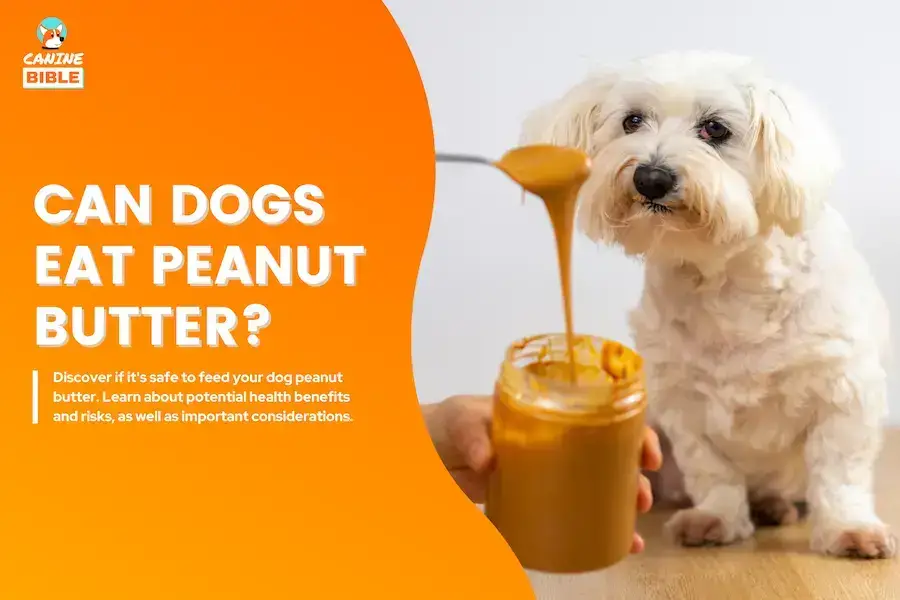
Understanding Peanut Butter and Its Popularity Among Dogs
Peanut butter’s allure for dogs lies in its irresistible flavor and satisfying texture. The rich, nutty taste often proves impossible to resist for even the pickiest of eaters, and the creamy consistency makes it easier for dogs to swallow, even those with sensitive mouths or compromised digestion. Beyond taste, peanut butter’s popularity stems from its versatile nature.
This creamy spread can be used as a reward during training sessions, encouraging dogs to learn new tricks and commands. It can be incorporated into interactive toys, providing mental and physical stimulation, keeping dogs engaged and entertained. However, the same appealing qualities that make peanut butter a favorite among dogs can also mask its potential dangers, making it crucial to unravel the hidden ingredients and their potential impact on canine health.
The Incarceration of Xylitol – what is in peanut butter that is bad for dogs
One of the most significant threats lurking within peanut butter for dogs is xylitol. This sugar substitute, commonly found in sugar-free products like gum, baked goods, and even some peanut butter brands, poses a severe risk to canine health. Xylitol, unlike natural sugars, has a unique metabolic pathway in dogs, leading to a rapid and excessive insulin release, causing a dramatic drop in blood sugar levels.

What is Xylitol?
Xylitol is an artificial sweetener, often marketed as a sugar-free alternative for humans seeking to reduce their sugar intake. It is naturally present in small amounts in fruits and vegetables, but it is primarily manufactured from birch wood or corn. Xylitol is approximately as sweet as sugar, readily dissolving in liquid, and possesses negligible calories, making it a popular choice for diet-conscious individuals. Unfortunately, this seemingly harmless sugar substitute can have catastrophic effects on dogs, highlighting the importance of carefully reading ingredient labels on all food products.
How Xylitol Affects Dogs
The dangers of xylitol lie in its ability to disrupt the delicate balance of blood sugar regulation in dogs. When ingested, xylitol triggers a rapid release of insulin from the pancreas, causing a dramatic decrease in blood sugar levels. This rapid drop, known as hypoglycemia, can manifest in a range of symptoms from lethargy and weakness to disorientation and seizures. In severe cases, xylitol poisoning can lead to liver failure, ultimately proving fatal if left untreated. This drastic effect on blood sugar levels makes xylitol particularly dangerous for dogs, even in small quantities.
Symptoms of Xylitol Poisoning
The impact of xylitol poisoning can manifest in a variety of symptoms, depending on the amount ingested and the dog’s individual susceptibility. It is crucial to recognize these signs and seek immediate veterinary attention if xylitol ingestion is suspected.
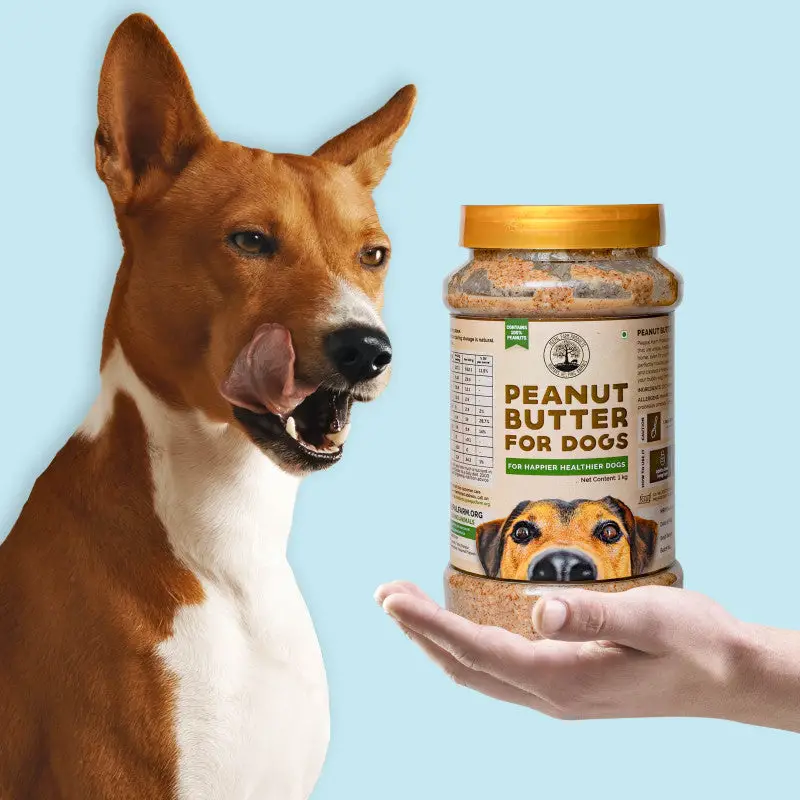
- Lethargy and Weakness: One of the earliest signs of xylitol poisoning is a noticeable decrease in energy levels, leading to lethargy, sluggishness, and overall weakness. This reduction in activity can be subtle and gradual, making it essential for owners to be attentive to their dog’s daily behavior and any significant changes.
- Vomiting and Diarrhea: Xylitol can irritate the digestive system, triggering vomiting and diarrhea. These symptoms may arise shortly after ingestion, indicating an adverse reaction to the artificial sweetener.
- Disorientation and Seizures: As xylitol causes a rapid drop in blood sugar, it can affect the brain’s function, leading to disorientation, stumbling, and even seizures. These neurological signs can be severe and require urgent medical intervention due to the risk of long-term neurological damage.
- Coma: In severe cases, xylitol poisoning can lead to coma, a state of deep unconsciousness, characterized by unresponsiveness to external stimuli. Coma is a serious indication of severe hypoglycemia and requires immediate emergency veterinary care to prevent irreversible damage.
The Trouble with Added Sugars and Fats
Beyond the looming threat of xylitol, many peanut butter brands contain added sugars and unhealthy fats, posing a significant risk to dogs. These additions, while tempting to human taste buds, can cause a multitude of health problems for our canine companions.
Impact of Excessive Sugar on Dog Health
Excess sugar intake is a major contributor to obesity in dogs, leading to a cascade of health problems that can negatively impact their overall well-being. Just as humans must carefully regulate their sugar intake to avoid complications like diabetes, heart disease, and liver problems, dogs are also susceptible to these conditions, particularly if exposed to excessive calories and sugar from unhealthy treats.
- Obesity: Overconsumption of sugary treats, including peanut butter, can lead to weight gain, straining joints and muscles, and potentially causing mobility limitations. This extra weight can also put additional strain on the heart and circulatory system, predisposing dogs to heart disease.
- Diabetes: Similar to humans, dogs can develop diabetes, which occurs when the body fails to regulate blood sugar effectively. Excess sugar intake can contribute to the development of diabetes, leading to increased thirst, frequent urination, and weight loss despite increased appetite.
- Dental Problems: Sugary treats can contribute to dental problems like plaque build-up and gum disease. Sugars feed bacteria in the mouth, leading to acid production, eroding tooth enamel and increasing the risk of tooth decay.
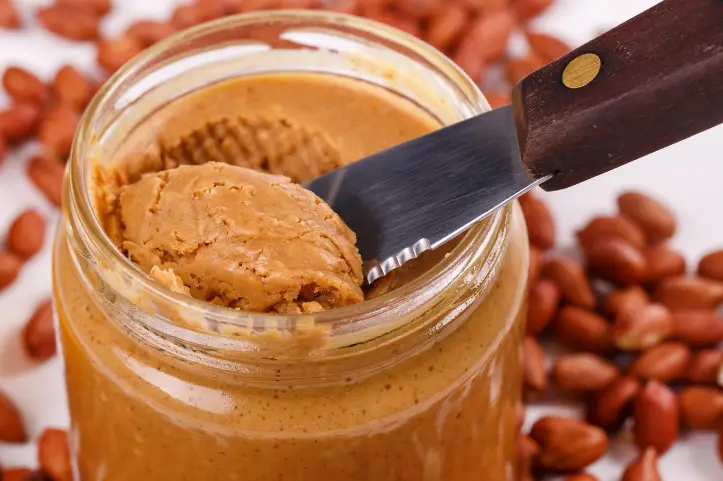
Risks Associated with Unhealthy Fats
Unhealthy fats in peanut butter can be detrimental to dogs, impacting their cardiovascular health and increasing the risk of pancreatitis, a severe condition.
- Cardiovascular Problems: High-fat diets can negatively impact cholesterol levels, leading to atherosclerosis, a condition characterized by plaque buildup within the arteries, restricting blood flow and increasing the risk of heart disease and stroke.
- Pancreatitis: High-fat diets can also trigger pancreatitis, an inflammation of the pancreas, characterized by severe abdominal pain, vomiting, and diarrhea. Pancreatitis can be life-threatening, requiring immediate veterinary attention.
Palm Oil: A Controversial Ingredient
Palm oil, a common ingredient in many processed foods, including peanut butter, has sparked controversy. While palm oil itself is not inherently toxic to dogs, its high saturated fat content raises concerns about its potential health implications.
Nutritional Profile of Palm Oil
Palm oil is extracted from the fleshy fruit of the oil palm tree, a native species of tropical regions like Southeast Asia. It is a versatile oil, widely used in cooking and processed foods due to its unique properties. Palm oil is rich in saturated fat, which provides a high amount of calories and contributes to its smooth texture and pleasant aroma. However, these same qualities, particularly the high saturated fat content, pose challenges for canine health.
Implications of High Saturated Fat Intake
The high saturated fat content in palm oil poses a significant risk to dog health due to its impact on cardiovascular health and the potential for pancreatitis.
- Cardiovascular Health: Excessive intake of saturated fats can increase cholesterol levels, potentially contributing to atherosclerosis and increasing the risk of heart disease.
- Pancreatitis: High-fat meals, particularly those rich in saturated fat like palm oil, can trigger pancreatitis, a painful and potentially life-threatening condition.
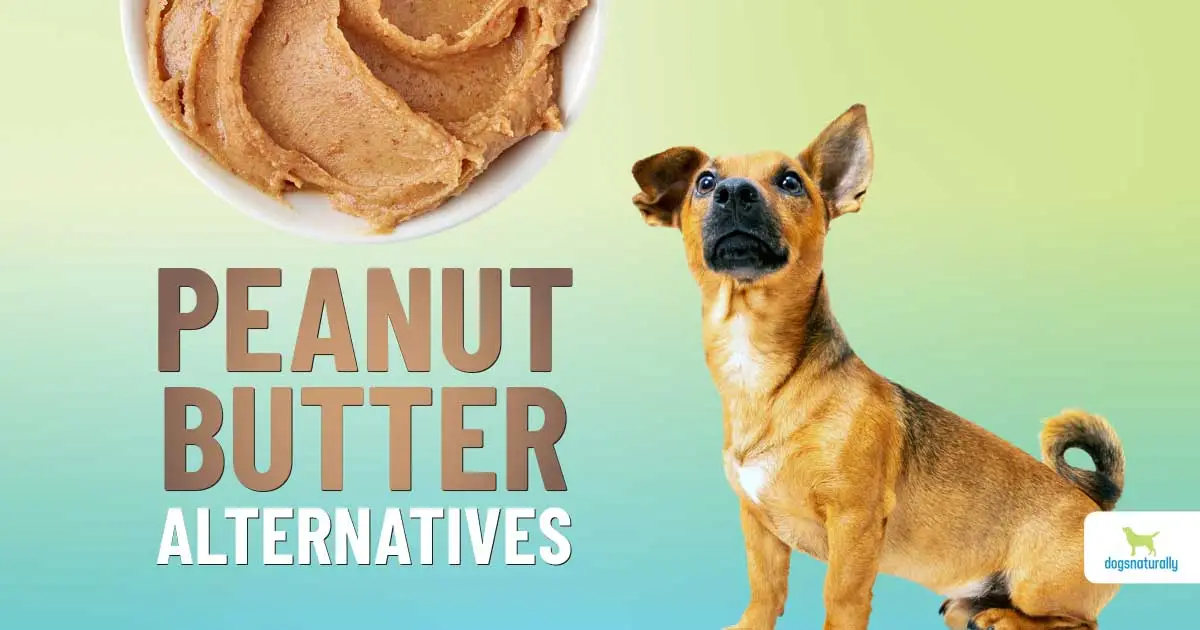
Artificial Flavorings and Preservatives
Beyond the concern over sugar, fats, and palm oil, commercially available peanut butter often includes artificial flavorings and preservatives, which can have detrimental effects on canine health.
Common Additives in Peanut Butter
Artificial flavorings and preservatives are frequently used in commercially produced peanut butter to enhance flavor, extend shelf life, and ensure consistency in taste and texture. These additions can include a range of ingredients, from synthetic flavors mimicking the taste of natural ingredients to preservatives designed to prevent spoilage.
- Artificial Flavorings: Artificial flavorings, found in many peanut butter brands, mimic the taste of natural ingredients but with potential health risks for dogs. These synthetic compounds are derived from chemicals and often contain additives that may not be easily digested or metabolized by dogs, potentially leading to gastrointestinal upset.
- Preservatives: Preservatives, such as sodium benzoate, are added to processed peanut butter to prevent food spoilage and extend shelf life. While they may not pose an immediate threat, these chemical additives can accumulate in the body over time, potentially leading to chronic health issues.
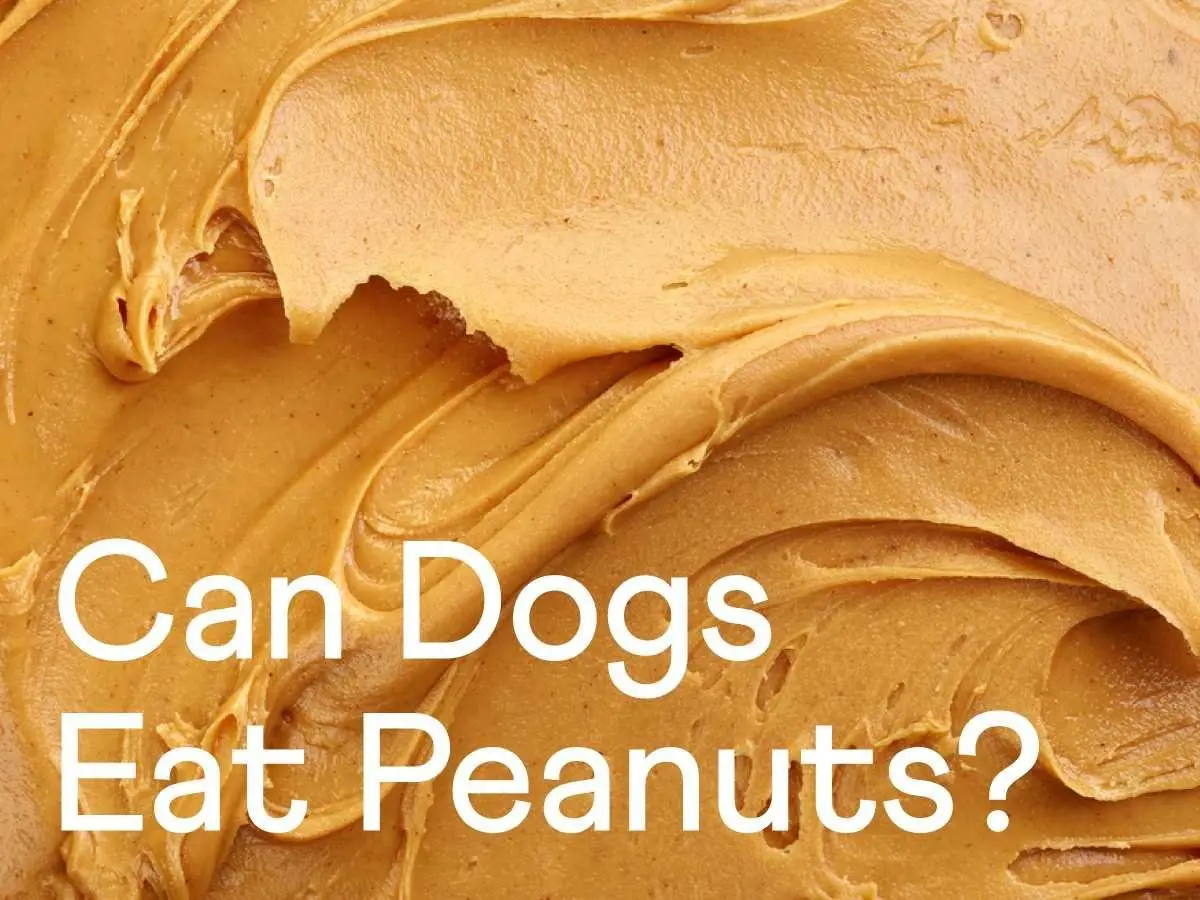
Potential Effects on Dogs’ Health
The artificial flavorings and preservatives in peanut butter can have a variety of adverse effects on dogs, depending on the specific ingredients and the dog’s individual sensitivity.
- Gastrointestinal Disturbances: Artificial flavorings and preservatives can irritate the digestive system, leading to vomiting, diarrhea, and stomach upset. Some dogs may also experience bloating, gas, and other digestive discomforts.
- Allergies and Skin Reactions: Some dogs may be allergic to certain flavorings or preservatives. These allergies can manifest in skin reactions like itching, rashes, or hair loss.
- Behavioral Changes: Certain additives, particularly artificial flavorings, can alter dog behavior by affecting their neurotransmitters and hormone levels. This can lead to restlessness, hyperactivity, or even aggression.
The Role of Salt in Peanut Butter
Salt, a common ingredient in many processed foods, including peanut butter, can also be harmful to dogs if consumed in excess.
Why Salt is Harmful to Dogs
Salt, or sodium chloride, helps regulate fluid balance and muscle function in both humans and animals. However, dogs have significantly smaller bodies and kidneys than humans, making them more susceptible to the negative effects of excessive salt intake.
Allergens in Peanut Butter
Peanuts themselves are a common allergen for dogs, potentially triggering a range of reactions from mild skin irritation to life-threatening anaphylaxis.
Peanuts as a Common Allergen
Peanut allergies are a common occurrence in dogs, manifesting in varying degrees of severity. Although not all dogs are allergic to peanuts, a significant portion of the canine population can experience allergic reactions to these legumes.

Identifying Allergic Reactions in Dogs
Recognizing allergic reactions in dogs is crucial to prevent further exposure and ensure their safety.
- Skin Reactions: Allergic reactions to peanut butter can appear as skin irritation, rashes, or hives. These reactions can be localized to the area of contact or spread across the body.
- Gastrointestinal Symptoms: Dogs with peanut allergies may experience gastrointestinal distress, including vomiting, diarrhea, and abdominal pain. These reactions can be severe and potentially life-threatening.
- Respiratory Symptoms: In severe cases, peanut allergies can trigger respiratory symptoms like difficulty breathing, coughing, or even anaphylaxis, a life-threatening allergic reaction.
Homemade vs. Store-Bought Peanut Butter
Dog owners face a crucial decision when it comes to peanut butter: homemade versus store-bought. While homemade peanut butter offers greater control over ingredients and allows for the removal of potentially harmful additives, convenience and readily available options often favor store-bought varieties.
Benefits of Homemade Peanut Butter
Homemade peanut butter provides complete control over ingredients, eliminating potentially harmful additives and ensuring a healthy and safe treat for dogs.
- Ingredient Control: Homemade peanut butter gives you complete control over the ingredients, allowing you to ensure that it is xylitol-free, sugar-free, and contains only natural, wholesome ingredients.
- Customization: You can customize the homemade peanut butter to suit your dog’s individual needs and preferences, adjusting the texture, adding flavor, and ensuring it is free of allergens.
Risks of Buying Commercial Brands
While store-bought peanut butter offers convenience, it’s crucial to be aware of the potential risks associated with readily available brands.
- Hidden Ingredients: It is crucial to read the ingredient lists on commercially available peanut butter meticulously. While the product may appear harmless, hidden ingredients like xylitol, artificial flavorings, preservatives, and unhealthy fats can jeopardize your dog’s health.
- Quality Variations: Store-bought peanut butter can vary in quality, with some brands containing lower-grade ingredients, artificial flavorings, and preservatives, potentially impacting the safety and nutritional value for dogs.
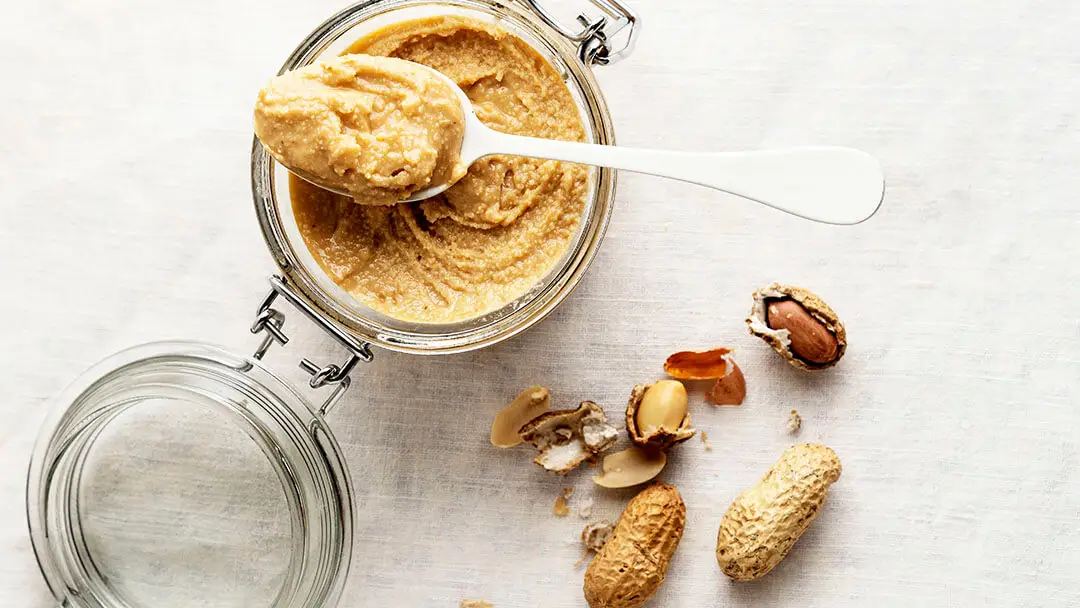
The Importance of Feeding Guidelines
While peanut butter offers a healthy treat for dogs, it’s crucial to follow proper feeding guidelines to avoid overindulgence and potential health complications.
Recommended Serving Sizes
The appropriate amount of peanut butter for a dog varies depending on their size, activity level, and individual nutritional needs.
- Small Dogs: Small dogs require smaller servings, typically confined to a teaspoon or two.
- Medium and Large Dogs: Larger dogs may tolerate slightly larger amounts of peanut butter, with an average serving size ranging from one to two tablespoons.
Signs of Overindulgence
It is essential to monitor your dog closely after giving them peanut butter and be aware of any possible signs of overindulgence.
- Weight Gain: Peanut butter is high in calories and fat, so it’s important to feed it in moderation to avoid weight gain. Excessive weight can lead to a host of health problems like heart disease, diabetes, and joint problems.
- Gastrointestinal Upset: Overfeeding peanut butter can lead to gastrointestinal upset, including vomiting, diarrhea, and abdominal pain. Pay attention to your dog’s behavior and any signs of digestive distress.
- Pancreatitis: Excessive peanut butter consumption, especially those containing high amounts of saturated fat, can increase the risk of pancreatitis, a potentially life-threatening condition.
Checking Labels: What to Look For
To ensure safe and responsible peanut butter consumption for your dog, it’s vital to approach label reading with a discerning eye.
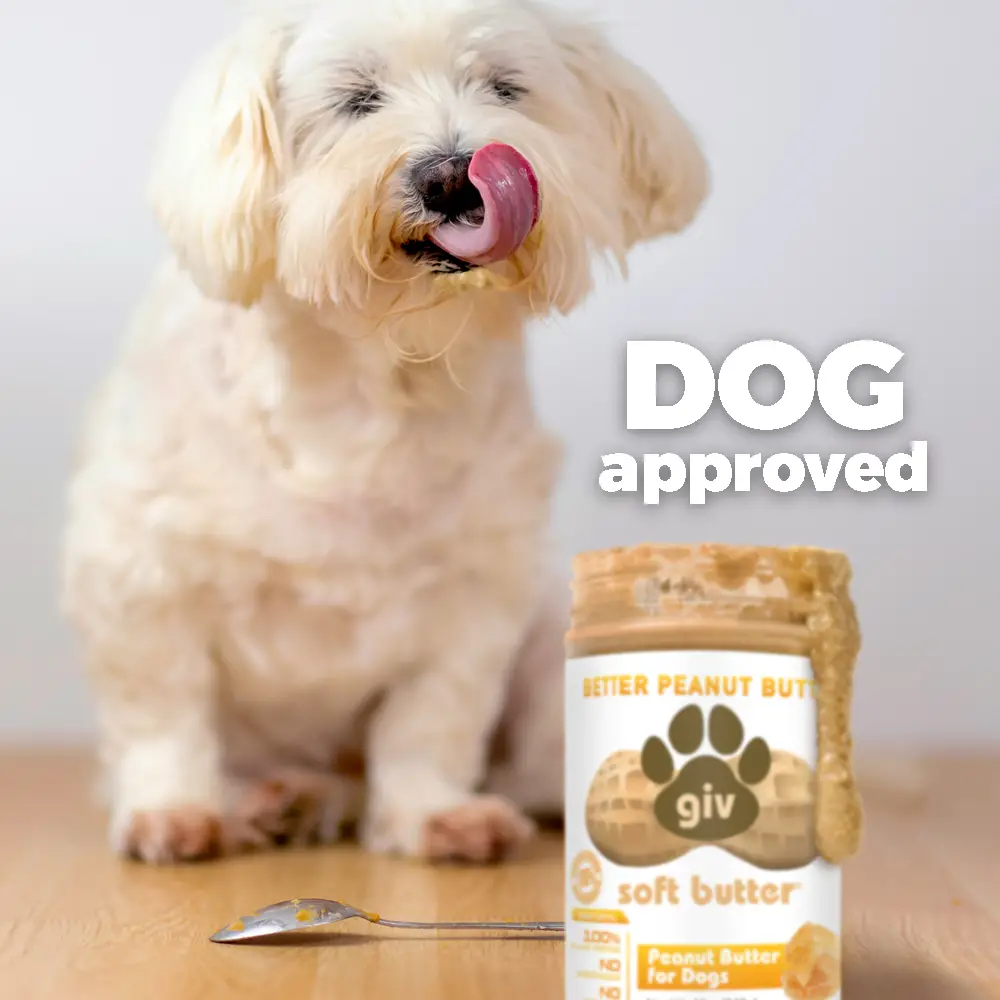
Key Ingredients to Avoid
When selecting peanut butter for your dog, there are specific ingredients to avoid for their potential health risks.
- Xylitol: This artificial sweetener is extremely toxic to dogs and can cause severe hypoglycemia, leading to seizures, coma, and even death.
- Added Sugars: Peanut butter with added sugars can contribute to obesity, diabetes, and dental problems in dogs. Opt for sugar-free options and consider alternatives like honey or maple syrup in very small amounts.
- Unhealthy Fats: Look for peanut butter with low levels of unhealthy fats like saturated and trans fats. Choose options made with natural, healthy fats like peanut oil or olive oil.
- Artificial flavorings and preservatives: While these ingredients may enhance flavor and shelf life, they can irritate the digestive system, trigger allergies, and potentially lead to behavioral changes in dogs.
Choosing Dog-Safe Peanut Butter
Several peanut butter brands are specifically marketed as safe for dogs. These brands typically utilize natural, wholesome ingredients, eliminating artificial flavorings, preservatives, and potential toxins like xylitol.
- Check Ingredient Lists: Scrutinize the ingredient list carefully for any signs of xylitol, added sugars, unhealthy fats, artificial flavorings, or other additives.
- Look for “Dog-Safe” Labels: Several brands prominently feature “dog-safe” labels or designate their products specifically for dogs.
- Consider Organic Options: Choose organic peanut butter whenever possible, as it is typically devoid of artificial additives, preservatives, and GMOs.
Alternatives to Peanut Butter for Dogs
If concerns over peanut butter ingredients persist, various alternatives provide a delicious and safe treat for dogs. These options offer a range of flavors and textures, catering to diverse preferences and nutritional needs.
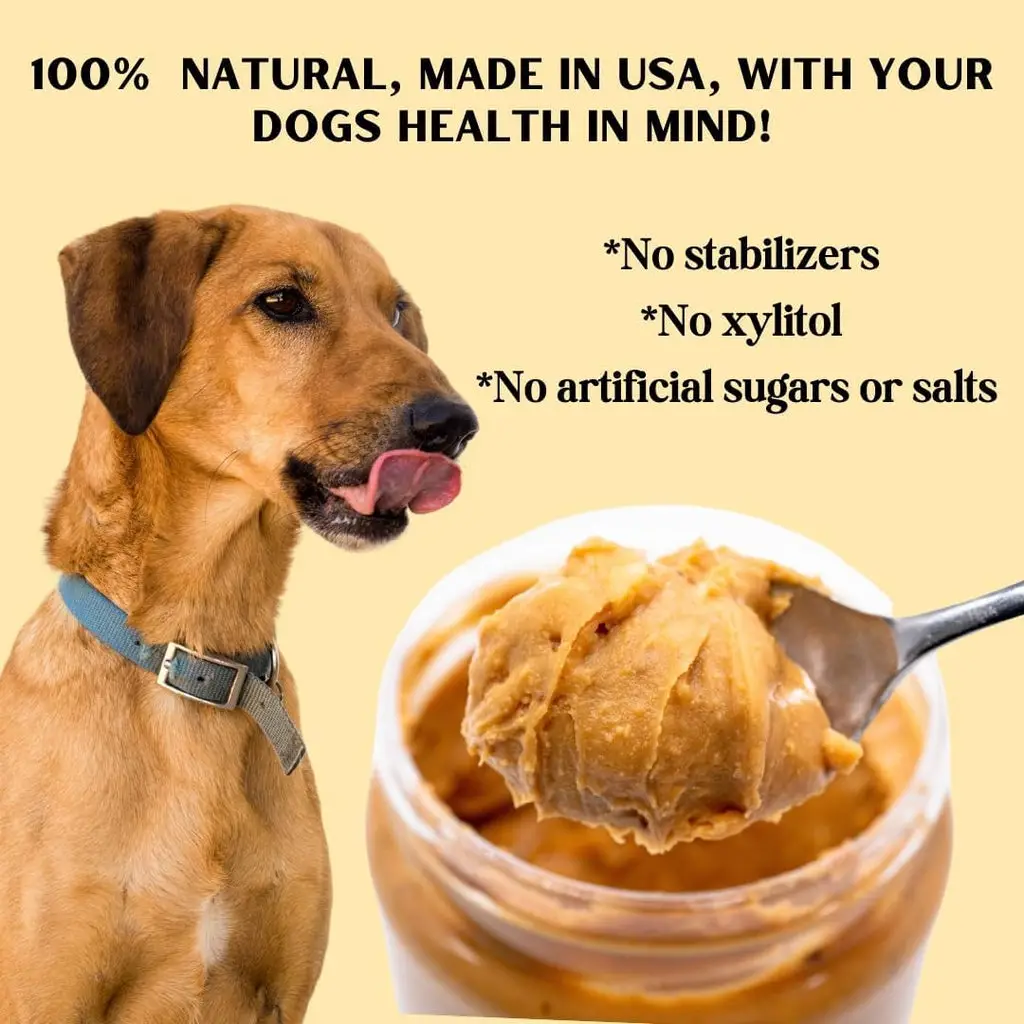
Nut-Free Options
For dogs with peanut allergies or sensitivity, exploring nut-free alternatives is essential.
- Sunflower Seed Butter: Sunflower seed butter provides a creamy, nutty flavor similar to peanut butter but without the risk of peanut allergies.
- Pumpkin Seed Butter: Pumpkin seed butter offers a unique flavor and texture, providing a healthy source of protein, fiber, and omega-3 fatty acids.
- Almond Butter: Almond butter is packed with nutrients, including healthy fats, protein, and fiber. However, it is a common allergen for dogs, so it’s crucial to introduce it cautiously and monitor for reactions.
- Cashew Butter: Cashew butter is rich in antioxidants and heart-healthy fats. However, it’s essential to remember that cashews belong to the cashew family, which can trigger allergies in some dogs.
Other Safe Treats
Beyond nut butters, numerous other safe and healthy treats can satisfy dogs’ cravings without compromising their well-being.
- Fruits and Vegetables: Offer fresh fruits and vegetables, including carrots, apples, bananas, and blueberries, providing a healthy source of vitamins, minerals, and fiber.
- Plain Yogurt or Cheese: Plain yogurt and cheese offer a protein boost, but ensure they are sugar-free and low in fat.
- Homemade Treats: Explore recipes for homemade dog treats, allowing you to tailor the ingredients to your dog’s specific needs and dietary preferences.
The Impact of Obesity on Dogs
Obesity is a serious health problem for dogs, stemming from a consistently imbalanced diet.
How Diet Contributes to Weight Gain
An unhealthy diet, rich in calories and unhealthy fats, can contribute significantly to weight gain in dogs.
- High-Calorie Foods: Foods high in calories, like processed treats and sugary snacks, can lead to excess calorie intake, promoting weight gain.
- Low-Quality Ingredients: Foods containing low-quality ingredients, such as cheap fillers and artificial additives, can be less filling and encourage increased food consumption, contributing to weight gain.
- Lack of Exercise: A sedentary lifestyle can further contribute to weight gain by reducing calorie expenditure.
Long-Term Health Consequences
Obesity in dogs can lead to a cascade of health problems, impacting their quality of life and lifespan.
- Joint Problems: Excess weight puts significant strain on joints, leading to arthritis and mobility limitations.
- Heart Disease: Obesity can increase the risk of heart disease by straining the heart and circulatory system.
- Diabetes: Obesity can contribute to the development of diabetes by disrupting the body’s ability to regulate blood sugar.
- Cancer: Some studies suggest a link between obesity and an increased risk of certain types of cancer.

Consulting Your Veterinarian
While this article provides valuable information on peanut butter and its potential risks for dogs, consulting your veterinarian is essential for tailored guidance on safe and healthy treat options.
When to Seek Professional Advice
It is essential to seek veterinary advice if you have any concerns about your dog’s health, especially if you suspect a peanut butter-related incident or allergies.
- Symptoms of Poisoning: Contact your veterinarian immediately if you suspect your dog has ingested xylitol or shows signs of xylitol poisoning, including lethargy, vomiting, seizures, or coma.
- Allergic Reactions: If you observe your dog exhibiting allergic reactions to peanut butter, such as skin irritation, vomiting, diarrhea, or respiratory distress, contact your veterinarian for prompt treatment.
- Individual Needs: Your veterinarian can provide personalized guidance on appropriate treat options, serving sizes, and nutritional considerations for your dog’s age, breed, activity level, and overall health.
Tailoring Treats to Your Dog’s Needs
Your veterinarian can provide tailored advice on safe and healthy treats for your dog, taking into account their specific needs and potential allergies.
- Health Conditions: If your dog has any health conditions, such as diabetes, heart disease, or pancreatitis, your veterinarian can advise on treat options that align with their dietary restrictions.
- Allergies: Your veterinarian can identify any potential allergies and help find safe alternatives to peanut butter.
- Individual Preferences: Your veterinarian can assist in finding treats that your dog enjoys and finds satisfying, promoting a healthy bond and positive reinforcement.
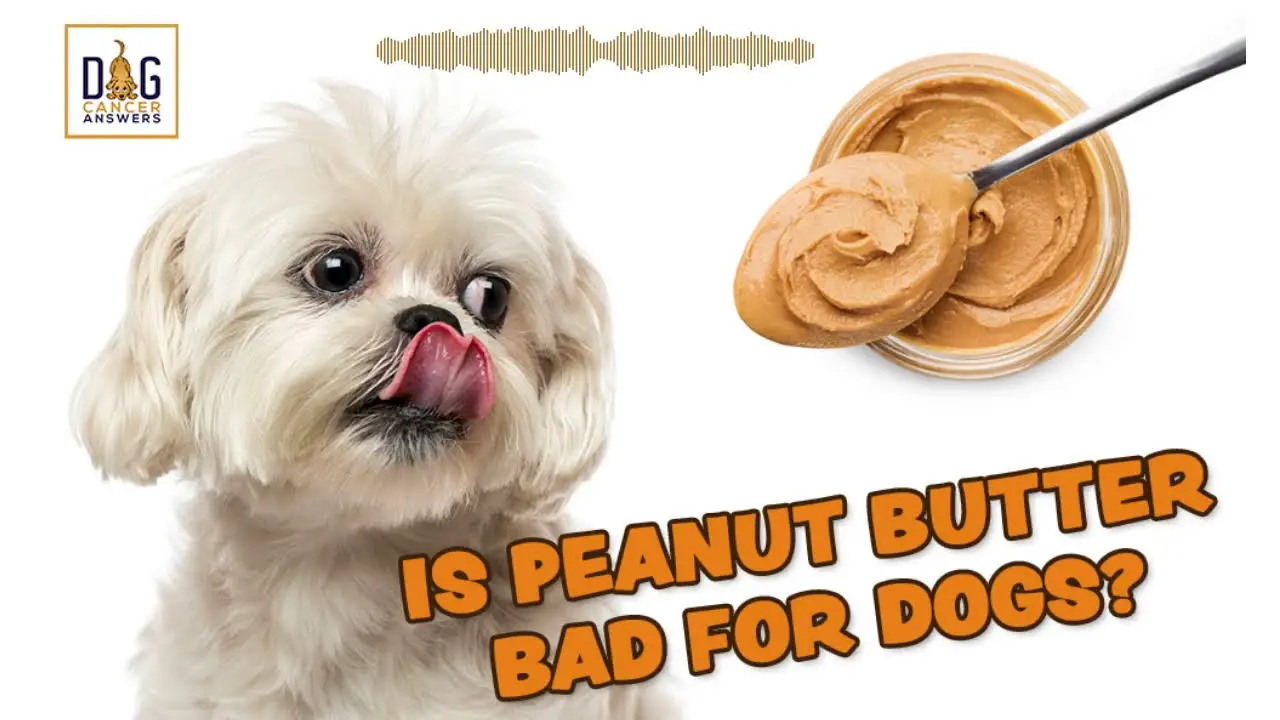
Conclusion
While peanut butter might seem like a harmless treat for dogs, understanding the risks associated with common peanut butter ingredients is crucial for responsible pet ownership. Be mindful of xylitol, added sugars, unhealthy fats, artificial flavors, and preservatives, and choose peanut butter brands specifically marketed for dogs.
Reading labels diligently, choosing dog-safe alternatives, and consulting with your veterinarian can ensure that peanut butter remains a safe and enjoyable treat for your furry companion. Always prioritize your dog’s health and well-being by selecting treats that enhance their lives without compromising their health.
